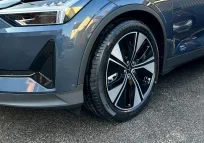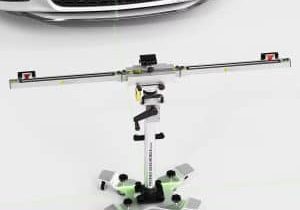As the world becomes more connected, cybersecurity is becoming an increasingly important facet of automotive safety. Automotive cybersecurity works by keeping data secure from malicious attacks and ensuring the integrity of driving systems.
Automotive cybersecurity is a rapidly growing field, and it is likely to continue to be a significant area of focus in the coming year. With the increasing reliance on computer systems and connectivity in modern vehicles, it is essential to ensure the security of these systems to protect against potential cyber threats.
In a research report published by global technology research and advisory firm Information Services Group, it was found the growing number of cyberattacks against cars is fuelling fears that vehicles and industrial operational technology (OT) are being targeted.
Its 2022 ISG Provider Lens global Manufacturing Security Solutions report found that cybersecurity has become a high priority for automotive companies and there is an urgent need to modernise or replace legacy systems, and find skilled cybersecurity vehicle engineers.
And with an increasing number of high-profile attacks on vehicles, the need for robust cybersecurity measures has been heightened.
Upstream, a cybersecurity and data management platform, revealed that cyber-attacks on cars have soared 225% in the last three years. They found that the most common automotive cyber-attacks saw a data or privacy breach, followed by car theft or a break-in via the car’s wireless key fob mechanism.
Charles Griffiths, Head of Technology and Innovation at IT site AAG explained: “It is predicted that all new cars sold in the UK will be connected to the internet by 2026, which exposes our vehicles to significant cyber threats.
“Without effective cybersecurity, everything from the infotainment system to the engine control unit is at risk. Cybersecurity considerations are paramount to the success of the next generation of the cars we drive.”
There are a number of trends and developments in the field of car cybersecurity that are likely to be noteworthy in the next 12 months, including an increasing focus on connected and autonomous vehicles.
The global self-driving cars market size is projected to grow from 20.3 million units in 2021 to 62.4 million units by 2030, at a CAGR of 13.3%.
As the development of connected and autonomous vehicles continues to advance, there will be a greater emphasis on ensuring the security of these systems.
Autonomous vehicles rely on technology such as sensors, cameras, and artificial intelligence (AI) to navigate roads without the need for human intervention. Connected cars use a range of technologies to communicate with other vehicles or infrastructure such as traffic signals. This allows them to share data about their environment in order to improve safety and efficiency on our roads.
As these technologies continue to develop, they will be essential in ensuring that future transportation is both safe and reliable for all users. This could include efforts to secure the communication systems that enable these vehicles to exchange data with each other and with infrastructure, as well as measures to protect against hacking or other cyber threats.
As cars become more advanced, cybersecurity becomes an increasingly important factor to consider. Automotive cybersecurity consists of both hardware and software-based security technologies. Hardware security typically involves the use of chipsets, controllers, communication systems, and physical locks that are designed to keep unauthorized users out of the car’s internal network.
Software security involves using operating systems, application programming interfaces (APIs), encryption protocols, firewalls, identity management systems, authentication mechanisms such as two-factor authentication (2FA), secure socket layer (SSL) certificates, and other cybersecurity tools to prevent hackers from infiltrating the car's systems.
In addition to protecting data from malicious attacks, automotive cybersecurity also involves ensuring the integrity of driving systems like navigation and driver-assistance features. This includes ensuring that these features are updated regularly with the latest safety patches and bug fixes in order to minimise any potential vulnerabilities in the system.
According to ResearchAndMarkets.com the global external cloud automotive cybersecurity services market is estimated to grow from $1.74 billion in 2021 to $4.14 billion by 2026 with a CAGR of 18.3%.
The main types of security in external cloud automotive cyber security services are endpoint, application, and wireless network security. ResearchandMarkets says the number of connected cars will propel the growth of the external cloud automotive cybersecurity services market in the years ahead.
Automakers are now taking steps to ensure that their cars meet cybersecurity standards and are better protected against potential threats. For example, car manufacturers are now incorporating cybersecurity into the design process of new cars rather than simply adding it on after production. Furthermore, many companies have established dedicated cybersecurity teams who research potential threats and develop strategies for mitigating them in order to ensure long-term safety for drivers. By investing in measures that protect against these threats now, manufacturers can help ensure that their vehicles remain secure for years to come while also promoting innovation in vehicle technology.
After being in review for several years, ISO/SAE 21434 was finally released at the end of August 2021, carrying with it significant implications for automotive software design. The goal of ISO SAE
21434 is to build upon the functional safety standard ISO 26262 and provide a framework similar to it for the entire life cycle of road vehicles. The major components of this new standard include security management, project-dependent cybersecurity management, continuous cybersecurity activities, associated risk assessment methods, and cybersecurity within the concept product development and post development stages of road vehicles.
There is likely to be ongoing work to establish and refine cybersecurity standards for the automotive industry. These standards may cover a range of topics, including the design and implementation of security systems, the testing and certification of vehicles, and the management of cybersecurity risks.
Car cybersecurity will become an essential part of keeping drivers and passengers safe this year and beyond. We are already seeing that automakers are investing heavily in advanced cybersecurity technologies such as machine learning and artificial intelligence to detect malicious code, encrypt data transmissions and identify potential vulnerabilities before they can be exploited by hackers and create secure networks for communication between vehicles.
With these cutting-edge cybersecurity measures being implemented into cars' systems, automakers can ensure that their vehicles remain safe from cyber threats while also promoting innovation in vehicle technology. As autonomous and connected cars become more commonplace on our roads, it's important for automotive companies to continue developing cybersecurity protocols that will keep us all protected when we're behind the wheel. Training within the automotive industry will be a big part of this.
Automotive companies are investing largely in cybersecurity training for their vehicles which involves the integration of cybersecurity protocols into cars' systems to increase their overall security posture. These companies are focusing on both hardware and software-based solutions such as introducing specialised cybersecurity chips that can monitor data from within a car's system, for example.
Autotech Training has helped hundreds of garages and their staff to find the right courses to improve their productivity and skills. In 2023 we will be building new training solutions with industry and regulatory bodies within the UK to ensure the customer is protected at all times and those working within industry understand and mitigate risks at all levels as we face this new threat together.




















